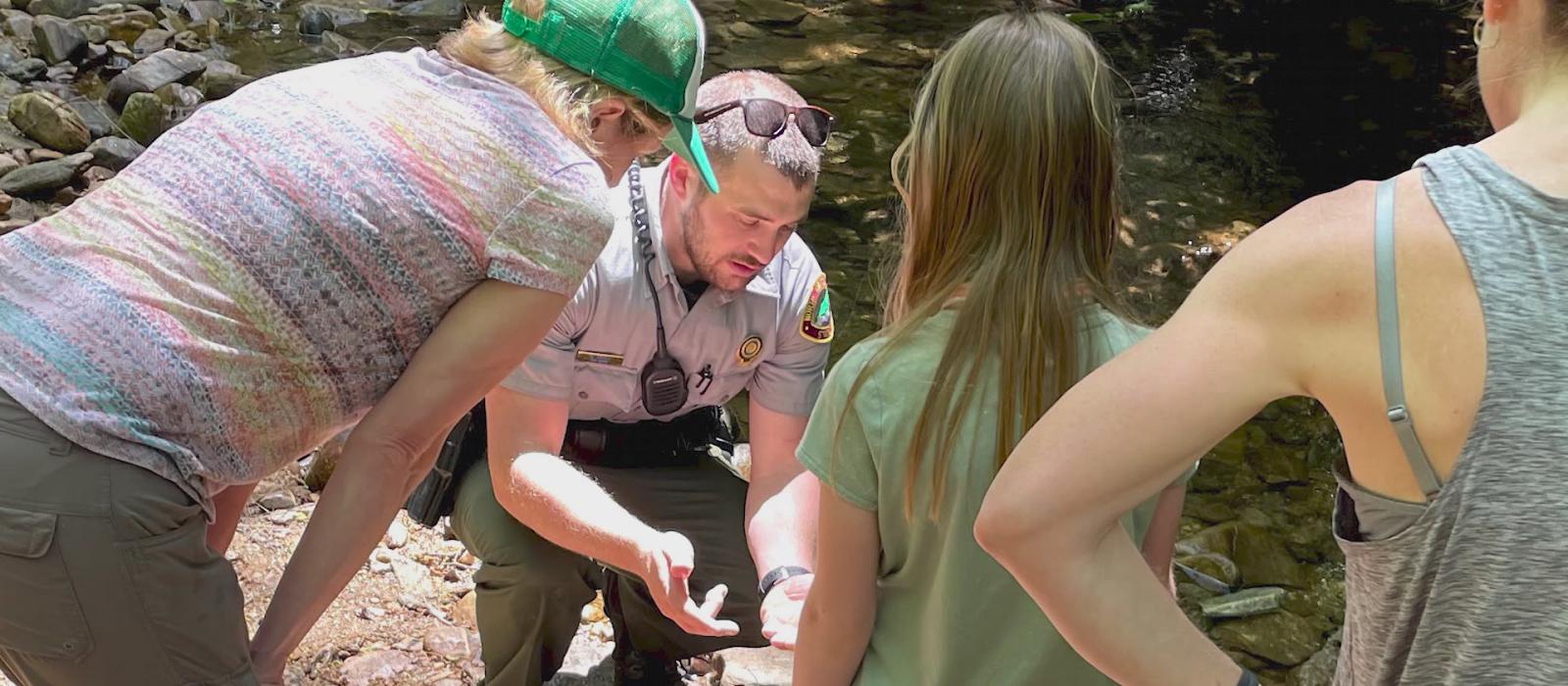Public Lands (Parks, Forests, Reserves, Recreation Areas)

Public lands are areas of land and water that are owned and managed by the government for the benefit of the public. These lands are preserved for various purposes, including conservation, recreation, and resource management. Public lands include national, state and local parks, forests, and recreation areas, wilderness areas, and wildlife refuges. Public lands play a crucial role in preserving natural resources, providing recreational opportunities, and supporting biodiversity. They are open to the public for activities such as hiking, camping, fishing, wildlife viewing, and more.
Working in public lands and other public spaces can be a deeply rewarding experience. You to connect with nature, help protect valuable landscapes, and contribute to public well-being. Careers in these areas can involve a variety of roles dedicated to education, recreation, conservation, and land management, blending a passion for nature with educational and conservation efforts.
One of the most fulfilling aspects of working in forests and parks is the daily immersion in nature. Whether you’re working as an interpreter, ranger, recreation leader, wildlife biologist, or trail crew member, you’ll spend a lot of time outdoors, surrounded by forests, lakes, mountains, or prairies. For many people, this close connection to the environment fosters a deep sense of fulfillment and purpose, as you’re directly contributing to the preservation and maintenance of the natural world.
Popular jobs in public lands include:
Environmental Educator
Duties: Lead school, youth, family, and public programs focusing on natural history, conservation, and environmental stewardship. Positions range from leading day programs, to days-long residential programs and wilderness expeditions.
Park Ranger or Interpreter
Duties: Protect and manage national, state, or local parks. Rangers provide education to visitors about park resources, enforce regulations, and assist with search and rescue missions.
Skills Needed: Knowledge of natural history, law enforcement training, communication skills.
Forester
Duties: Assist with forest management by conducting surveys, monitoring forest health, and helping with land restoration projects.
Skills Needed: Knowledge of forestry practices, use of forestry tools and equipment, and ecological principles.
Park Manager
Duties: Oversee the operations of a park, forest, or recreation area. They manage staff, budgets, and day-to-day activities, ensuring both conservation efforts and public access to the space.
Skills Needed: Strong leadership, organizational skills, and knowledge of environmental law and park operations.
Recreation Planner
Duties: Plan and design recreational programs and facilities within parks and public spaces. They focus on creating spaces for hiking, camping, fishing, and other outdoor activities.
Skills Needed: Understanding of recreational trends, land use planning, environmental sustainability.
Recreation Director
Duties: Oversee recreational programs and activities, such as sports leagues, outdoor education, and community events. They ensure programs are inclusive, safe, and engaging.
Skills Needed: Organizational skills, management experience, and knowledge of recreational needs and interests.
Ecotourism Guide
Duties: Lead tours in parks and natural areas, offering educational experiences while promoting environmental awareness and conservation.
Skills Needed: Expertise in local wildlife, plants, and ecosystems; strong communication and guiding skills.
Conservation Officer
Duties: Enforce laws related to wildlife and natural resource conservation, ensuring that parks and forests are protected from illegal activities such as poaching or habitat destruction.
Skills Needed: Law enforcement training, knowledge of environmental protection laws, and conflict resolution.
Education and Training:
Degree Programs: Pursue a degree in fields such as environmental science, forestry, park management, conservation biology, or natural resource management.
Certifications: Obtain relevant certifications such as CPR, First Aid, and Wilderness First Responder, as well as any specialized certifications required for your area of interest.
Gain Experience:
Volunteer: Offer your time to local parks, nature reserves, or conservation organizations.
Internships: Look for internships or seasonal work with parks and recreation departments, national or state parks, and environmental organizations.